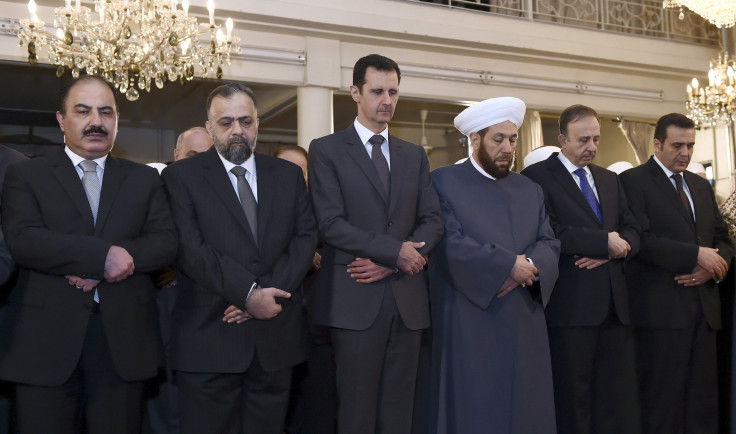Assad Blames 'Short-Sighted' Western Leaders For France Attacks, Urges Intel Sharing to Fight Terrorism

Reacting to last week’s attacks in Paris that claimed the lives of 17 people, Syrian President Bashar Assad said that while he sympathized with the victims' families, the attacks were the result of Western politicians being “short-sighted and narrow-minded,” according to a report published Wednesday by SANA, Syria's state-run news agency.
“We are against killing innocent people anywhere in the world … this is our principle,” Assad reportedly told Literární noviny, a Czech monthly magazine. “At the same time, we want to remind many people in the West that we have been talking about these repercussions since the beginning of the crisis in Syria. We have been saying, you shouldn’t support terrorism and provide it with a political umbrella, because this will reflect on your countries and your people. They didn’t listen to us.”
According to the report, Assad also said that last week’s events in France “proved that what we said was true,” and urged countries fighting terrorism to share intelligence.
“Fighting terrorism doesn’t need an army, but needs good policies … there should be an exchange of information among the countries concerned with fighting terrorism,” Assad reportedly said.
Since the start of the civil war in Syria in 2011, Assad has accused Western nations, including the U.S., of fomenting unrest in the country by providing training and arms to Sunni rebels whom the Syrian government has labeled as “terrorist” groups. The U.S. has accused Assad of clinging to power illegally and indulging in human rights violations.
Meanwhile, reacting to the release of the first issue of Charlie Hebdo since the attack on its office last Wednesday, Iran called the newspaper's cover depicting a weeping Prophet Muhammad holding a sign that reads, “Je suis Charlie,” ("I am Charlie"), an insult to Islam, according to media reports.
The cover “provokes the emotions of Muslims and hurts their feelings around the world, and could fan the flame of a vicious circle of extremism,” a spokesperson for the Iranian foreign ministry reportedly said.
Although Iran had, at the time, strongly condemned the attack on the newspaper’s office, terming it a “complete contradiction to Islamic teachings,” the Iranian official, in her latest comments, said that the new cartoon was “an abuse of freedom of speech” and was “not acceptable,” according to media reports.
© Copyright IBTimes 2024. All rights reserved.






















